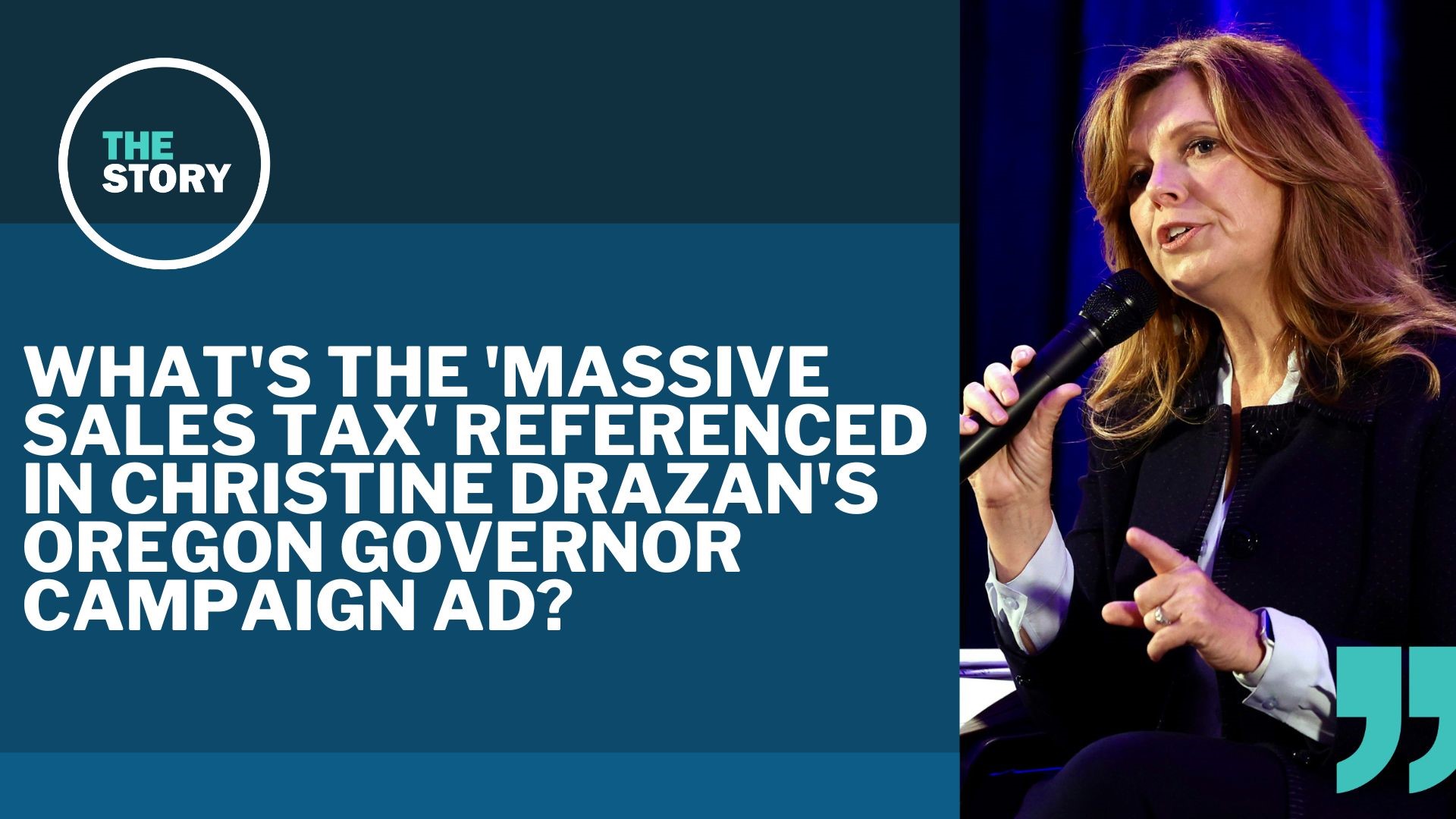PORTLAND, Ore. — The three-way race for Oregon governor is heating up as the November general election gets closer. Democrat Tina Kotek, Republican Christine Drazan and unaffiliated candidate Betsy Johnson have all begun releasing campaign ads.
One of those ads has sparked some questions from KGW viewers. A recent TV and digital ad from Drazan's campaign left several viewers wondering about one of the attacks the candidate leveled against her two opponents.
In a voiceover partway through the one-minute ad, Drazan states that Kotek and Johnson "helped Kate Brown push through a massive sales tax when we could least afford it," while displaying photos of her two opponents and Gov. Kate Brown.
Several viewers wrote to KGW to ask what policy the ad was referring to.
THE QUESTION
Christine Drazan accuses Tina Kotek and Betsy Johnson of helping Gov. Kate Brown "push through a massive sales tax." What is she referencing?
THE SOURCES
THE ANSWER
Drazan is referencing a bill passed by the Oregon State Legislature to raise new funding for education via a corporate activity tax, also commonly referred to as a gross receipts tax. Gov. Kate Brown signed House Bill 3427 into law in 2019, and it took effect in 2020.
All three candidates were serving in the legislature at the time; Kotek and Drazan in the House and Johnson in the Senate. Kotek and Johnson both voted for HB 3427; Drazan voted against it.
WHAT WE FOUND
The voiceover doesn't specify what Drazan is referring to, but the accompanying image includes the quote "a hidden sales tax" attributed to a June 15, 2021 editorial in The Bend Bulletin.
The opening line of the editorial states, "Business groups have made it clear they don't like House Bill 3427, a hidden sales tax, and want to put it to a vote of the people." Drazan's campaign also confirmed to KGW that the ad was referring to HB 3427.
The bill raises about $1 billion a year for education through a 0.57% tax on gross receipts for businesses with at least $1 million in sales. The tax is separate from regular business income taxes, and the revenue goes to a new "Fund for Student Success," according to the Oregon Department of Revenue.
Supporters of the measure championed it as a sorely needed funding boost for the state's public education system.
The measure isn't a literal sales tax, which would mean a direct tax on individual purchases that businesses would collect from consumers at the point of sale. Oregon is known for being one of only a few states that don't collect sales tax.
Instead, the corporate activity tax is applied to businesses based on their overall sales revenue.
Opponents have argued that the tax will harm businesses, and that business owners will pass the increased costs on to consumers in the form of higher prices, hence the term "hidden" sales tax in the Bulletin editorial. Drazan drops the qualifier, simply calling it a sales tax in her ad.

